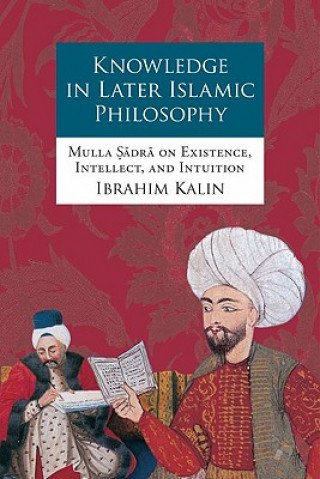
Kod: 04535238
Knowledge in Later Islamic Philosophy
Autor Ibrahim Kalin
This study looks at how the seventeenth-century philosopher Sadr al-Din al-Shirazi, known as Mulla Sadra, attempted to reconcile the three major forms of knowledge in Islamic philosophical discourses: revelation (Qur'an), demonstr ... więcej
- Język:
 Angielski
Angielski - Oprawa: Twarda
- Liczba stron: 344
Wydawca: Oxford University Press Inc, 2010
- Więcej informacji o książce

Zobacz książki o podobnej tematyce
-

You Can Heal Your Life
55.80 zł -29 % -
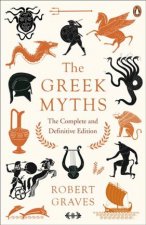
Greek Myths
79.47 zł -23 % -

Cute Little Lenormand
94.28 zł -12 % -

Engineering Management for the Rest of Us
77.56 zł -5 % -

Bluey: Fun and Games: A Colouring Book
33.64 zł -23 % -

Legend of Zelda: Breath of the Wild
163.29 zł -

Suffering of Light
230.88 zł -23 % -

US Navy's Fast-Attack Submarines, Vol. 2: Seawolf Class SSN-21-Virginia Class SSN-774
163.89 zł -

Anne of Green Gables
42.70 zł -23 % -

Silver Spoon Classic
204.59 zł -14 % -

Lightfall: The Girl & the Galdurian
53.38 zł -27 % -

The Umbrella Academy Volume 1: Apocalypse Suite
70.20 zł -14 % -

Post Office
47.04 zł -14 % -

Bulletproof Diet
113.42 zł -5 % -

Dooku: Jedi Lost
51.87 zł -23 % -

Frank Miller's Sin City Volume 1: The Hard Goodbye (fourth Edition)
111.61 zł -23 % -

Tolkien Boxed Set
345.72 zł -5 % -

ReWork
61.24 zł -15 % -

Shallows - What the Internet Is Doing to Our Brains
48.55 zł -5 % -

The Complete Mediterranean Cookbook
149.69 zł -5 % -

Painting in Watercolor
145.56 zł -5 %
Podaruj tę książkę jeszcze dziś
- Zamów książkę i wybierz "Wyślij jako prezent".
- Natychmiast wyślemy Ci bon podarunkowy, który możesz przekazać adresatowi prezentu.
- Książka zostanie wysłana do adresata, a Ty o nic nie musisz się martwić.
Więcej informacji o Knowledge in Later Islamic Philosophy
Za ten zakup dostaniesz 376 punkty
 Opis
Opis
This study looks at how the seventeenth-century philosopher Sadr al-Din al-Shirazi, known as Mulla Sadra, attempted to reconcile the three major forms of knowledge in Islamic philosophical discourses: revelation (Qur'an), demonstration (burhan), and gnosis or intuitive knowledge ('irfan). In his grand synthesis, which he calls the 'Transcendent Wisdom', Mulla Sadra bases his epistemological considerations on a robust analysis of existence and its modalities. His key claim that knowledge is a mode of existence rejects and revises the Kalam definitions of knowledge as relation and as a property of the knower on the one hand, and the Avicennan notions of knowledge as abstraction and representation on the other. For Sadra, all these theories land us in a subjectivist theory of knowledge where the knowing subject is defined as the primary locus of all epistemic claims. To explore the possibilities of a 'non-subjectivist' epistemology, Sadra seeks to shift the focus from knowledge as a mental act of representation to knowledge as presence and unveiling. The concept of knowledge has occupied a central place in the Islamic intellectual tradition. While Muslim philosophers have adopted the Greek ideas of knowledge, they have also developed new approaches and broadened the study of knowledge. The challenge of reconciling revealed knowledge with unaided reason and intuitive knowledge has led to an extremely productive debate among Muslims intellectuals in the classical period. In a culture where knowledge has provided both spiritual perfection and social status, Muslim scholars have created a remarkable discourse of knowledge and vastly widened the scope of what it means to know. For Sadra, in knowing things, we unveil an aspect of existence and thus engage with the countless modalities and colours of the all-inclusive reality of existence. In such a framework, we give up the subjectivist claims of ownership of meaning. The intrinsic intelligibility of existence, an argument Sadra establishes through his elaborate ontology, strips the knowing subject of its privileged position of being the sole creator of meaning. Instead, meaning and intelligibility are defined as functions of existence to be deciphered and unveiled by the knowing subject. This leads to a redefinition of the relationship between subject and object or what Muslim philosophers call the knower and the known.
 Szczegóły książki
Szczegóły książki
Kategoria Książki po angielsku Humanities Philosophy Non-Western philosophy
646.13 zł
- Pełny tytuł: Knowledge in Later Islamic Philosophy
- Podtytuł: Mulla Sadra on Existence, Intellect, and Intuition
- Autor: Ibrahim Kalin
- Język:
 Angielski
Angielski - Oprawa: Twarda
- Liczba stron: 344
- EAN: 9780199735242
- ISBN: 0199735247
- ID: 04535238
- Wydawca: Oxford University Press Inc
- Waga: 532 g
- Wymiary: 218 × 147 × 29 mm
- Data wydania: 29. April 2010
Ulubione w innej kategorii
-

Light on Yoga
93.68 zł -5 % -

Freedom from the Known
51.87 zł -23 % -

Heart of Yoga
77.26 zł -14 % -

Secret Teachings of Padmasambhava
79.47 zł -23 % -

Basic Writings of Mo Tzu, Hsun Tzu, and Han Fei Tzu
434.37 zł -

ZEN and the Art of Happiness
57.51 zł -5 % -

Krishnamurti'S Notebook
77.46 zł -5 % -

Tao of Pooh
43.41 zł -15 % -
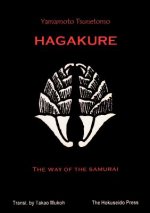
Hagakure - The Way of the Samurai
76.25 zł -

Hagakure
57.31 zł -5 % -

Dancing Wu Li Masters
77.56 zł -5 % -

Meditations
56.50 zł -23 % -

Book of Five Rings
70.41 zł -23 % -

Light on Pranayama
61.14 zł -23 % -

Little Book of Ikigai
48.95 zł -14 % -

Kamasutra
48.95 zł -14 % -

Analects
47.34 zł -23 % -

Zen and the Art of Motorcycle Maintenance
73.43 zł -9 % -

Art of War
40.49 zł -23 % -

Hyperobjects
105.56 zł -4 % -
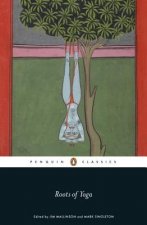
Roots of Yoga
61.14 zł -23 % -

Art of War
125.51 zł -4 % -

Psychotherapy East and West
73.43 zł -5 % -
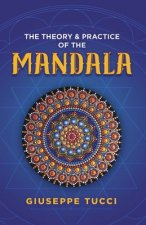
Theory and Practice of the Mandala
45.52 zł -4 % -
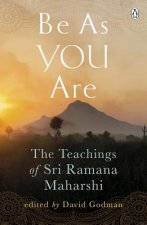
Be As You Are
51.87 zł -23 % -

Lost Writings of Wu Hsin
98.92 zł -

Lightning and the Sun
248.91 zł -

Moving Inward: The Journey to Meditation
65.57 zł -4 % -
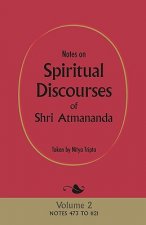
Notes on Spiritual Discourses of Shri Atmananda
67.08 zł -
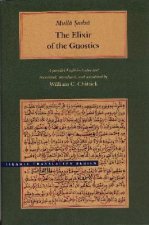
Elixir of the Gnostics
192.90 zł -
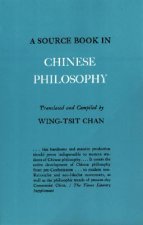
Source Book in Chinese Philosophy
185.75 zł -12 % -

Twenty Precepts of Gichin Funakoshi
44.11 zł -4 % -

Oxford Handbook of World Philosophy
352.57 zł -

Wish-Fulfilling Jewel
76.55 zł -1 % -
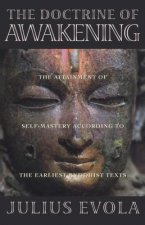
Doctrine of the Awakening
81.39 zł -4 % -

What Are You Doing With Your Life?
61.24 zł -15 % -

Total Freedom
85.62 zł -5 % -

Light on Yoga
93.17 zł -23 % -

Code of the Samurai
65.57 zł -4 % -
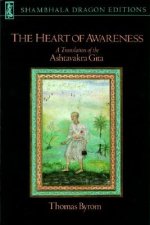
Heart of Awareness
84.11 zł -23 % -

Yoga Sutras of Patanjali
36.05 zł -23 % -
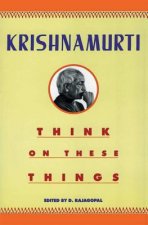
Think on These Things
73.63 zł -5 % -

Zhuangzi: The Complete Writings
163.08 zł -10 % -

Shiva Beginner Puja
55.29 zł -

Heart
64.87 zł -

Kali Puja
113.42 zł -

Tree of Yoga
47.34 zł -23 % -

On Having No Head
81.18 zł -

Bringing Yoga to Life
73.63 zł -5 %
zadowolonych klientów
Od roku 2008 obsłużyliśmy wielu miłośników książek, ale dla nas każdy był tym wyjątkowym.
Copyright! ©2008-24 libristo.pl Wszelkie prawa zastrzeżonePrywatnieCookies



 21 milionów książek
21 milionów książek Dostawa 10.99 zł
Dostawa 10.99 zł (32) 444 93 66 (8-15.30h)
(32) 444 93 66 (8-15.30h)